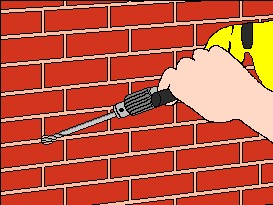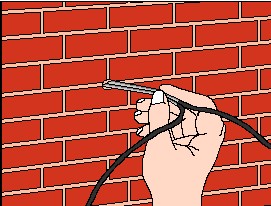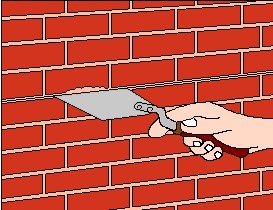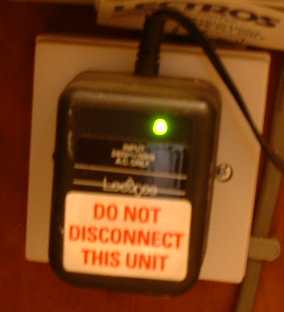Electro Osmosis Damp Proof course
- As well as chemical or physical damp proof courses, there are electric damp proof courses. These are known as electro osmosis damp proof courses and are very effective. These have distinct advantages over the chemical damp proof courses as they can be used on very thick walls, are easy to install and less making good is required after installation.
- Electro osmosis was first described by F.F.Reuss in 1809, it has growing applications in micro fluidics and has been used as a effective damp proof system for over 30 years.
- A titanium wire is passed around the walls to be treated and at regular intervals this wire is pushed into holes made in the brickwork, then it is earthed and a safe voltage is applied, this stops the dampness from rising up the masonry.
- As long as the plaster has not perished on the walls, there is no need to remove it as electro osmosis can be concealed behind the skirting boards. You can test the plaster by tapping it with your knuckles, if it sounds hollow then it has come away from the wall and needs knocking off and re-plastering.
- Electro osmosis costs pennies per week to run as it is very low voltage.
- This system can be used on Listed buildings and period properties and evidence of there being a damp proof course will not be seen!

Holes are drilled at regular intervals around the walls of the property, normally behind where the skirting board will be. These holes are spaced out at approximately every meter.

The Titanium wire is then bent and pushed into these holes at the specified intervals, this is called an anode. The wire can be left without the worry that a nail or screw in the skirting board will break the wire as the Titanium wire is extremely tough and a screw or nail hitting it will merely move the wire, without breaking it.

The hole is then back pointed with some mortar containing some waterproofing agent.

One end of the wire is connected to a metal stake which is hammered into the ground to make a effective earth. The other end is similar looking to a transformer and needs plugging into the mains supply of the property. The Titanium wire must not come into contact with any metal pipes such as Gas, Water or central heating or this will earth the system and prevent it from working correctly. If any pipes etc. are near the Titanium wire then the wire should be covered with some insulated sleeving to prevent it from being earthed.



